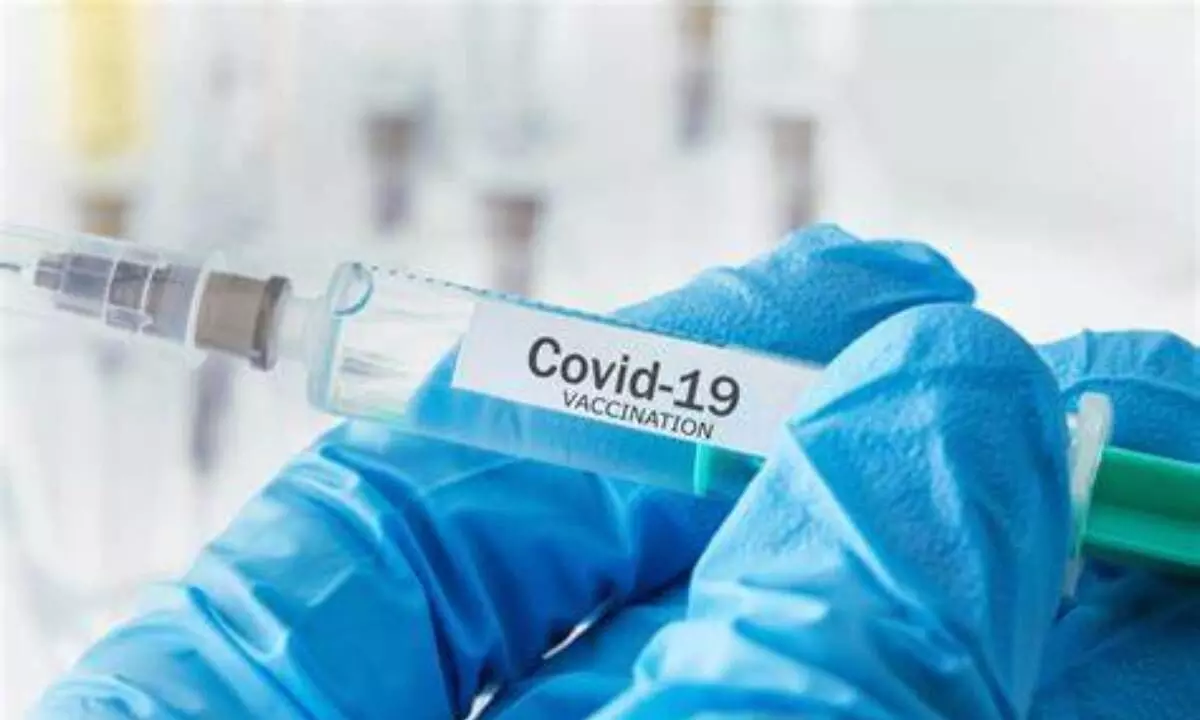IISc scientists develop new heat-tolerant vaccine for Covid-19, variants
Scientists at the Indian Institute of Science (IISc) are developing a new heat-tolerant vaccine that can offer protection against different strains of SARS-CoV-2 -- both current and future variants
image for illustrative purpose

New Delhi, Jan 11: Scientists at the Indian Institute of Science (IISc) are developing a new heat-tolerant vaccine that can offer protection against different strains of SARS-CoV-2 -- both current and future variants.
This comes even as the country is under the grip of the new highly transmissible JN.1 variant with immune escaping features.
In a study published in npj Vaccines, the team reported the design of a synthetic antigen that can be manufactured as a potential Covid-19 vaccine candidate.
They show that their vaccine candidate is effective against all current strains of SARS-CoV-2 and can be quickly adapted for future variants as well.
After analysing various proteins found in the virus, the team led by Raghavan Varadarajan, Professor at IISC's Molecular Biophysics Unit (MBU), selected two parts of SARS-CoV-2's spike protein -- the S2 subunit and the Receptor Binding Domain (RBD) -- for designing their vaccine candidate.
The S2 subunit is highly conserved -- it mutates much less than the S1 subunit, which is the target of most current vaccines.
Scientists have also known that the RBD can provoke a strong immune response in the host. Therefore, the team created a hybrid protein called RS2 by combining these two components.
The researchers used mammalian cell lines to study the expression of the hybrid protein.
The team tested the effects of the protein in both mice and hamster models and found that the hybrid protein triggered a strong immune response and provided better protection when compared to vaccines containing the whole spike protein.
The RS2 antigen can also be stored at room temperature for a month without the need for cold storage, unlike many vaccines on the market which require mandatory cold storage. This would make the distribution and storage of these vaccine candidates much more economical.
Varadarajan explains that his team began working on the vaccine even before the pandemic became widespread in India.
Since 2000, Varadarajan’s team has been working on designing several viral vaccines, including those against AIDS and influenza. They have leveraged this expertise to design their current RS2-based Covid-19 vaccine candidate in collaboration with the startup Mynvax, that was, until recently, incubated at IISc.
According to the team, the vaccine candidate can be tailored to incorporate the RBD region of any new variant of SARS-CoV-2 that might emerge. Its high levels of expression and stability at room temperature can greatly reduce production and distribution costs, making it well suited for combating Covid-19.

